Considering to purchase a second-hand car? Well, that’s not a bad idea. But your dream of a car ownership might turn to a nightmare if you miss to do the VIN number lookup.
A very crucial step in purchasing a pre-owned vehicle is to obtain a Vehicle History Report (VHR) or Vehicle Identification Number (VIN) check.
In the past, people used to buy vehicles, whether old or new, by just inspecting the mechanical information and turning the pages of a file of mere records, which had greater chances of manipulation.
Thanks to the modern technology and record maintaining systems, a VIN check of the vehicle can now reveal the whole picture of any vehicle.
A VIN can be said as the DNA of a vehicle. The simple but important steps of a VIN number lookup can save you lots of time and money afterwards if done before making the purchase of a new/pre-owned vehicle.
What are VHR and VIN?
The Vehicle History Report (VHR) is a document containing the detailed information of any particular vehicle. For you to get the history of your second-hand vehicle you need to get the Vehicle Identification Number (VIN).
Like most of the people, you might not be paying much attention to the VIN and consider it as just a simple and useless combination of digits. But you should note it that it is actually the most important aspect of a vehicle.
The VIN number is unique unlike other codes and it cannot be changed or manipulated. The vehicle production line gives the number and fixes it to the vehicle forever.
Where to find the Vehicle Identification Number?
There are some special places in your vehicle where you can find the VIN and proceed to do your VIN number lookup.
You can find the Vehicle Identification Number in the interior dash of the driver’s side or near the driver’s door jamb.
You can also find it under the hood of the front engine or under the spare tire. The firewall of engine also contains the Vehicle Identification Number in some cases. For older cars you can find it in the front end of the frame.
There is also a possibility to find your Vehicle Identification Number in the vehicle’s title or in the insurance card.
A free do-it-yourself method to decode the VIN:
The Vehicle Identification Number (VIN) is a unique combination of 17 letters and numbers assigned by the manufacturer to individual vehicles.
There are several tools both online (like VINCheckPro) and offline to decode the VIN to know its revelations.
There are several VIN check services available online that can provide you with a full-fledged history of the vehicle at a fee or even for free sometimes.
Decoding a VIN:

There are a total of 17 characters which are a combination of letters and numbers.
The first three characters show the details of the vehicle manufacturer. Among these three characters, the first one is a number indicating the country of manufacturing while the second character indicates the manufacturer and the third, the type of vehicle.
The next six characters show the description of the vehicle. From these six, the first five characters give the vehicle details and the sixth one shows the check digit.
The last eight characters give the identification of the vehicle. From these eight characters, the first two indicate the year of make and the assembly plant respectively. The rest six characters indicate the vehicle’s serial number.
Since you are now able to decode the Vehicle Identification Number of your car, you can play a clever role in investigating the revelations of the VIN.
What does the VIN number lookup reveal?
If you are purchasing a new or a pre-owned vehicle, performing a VIN number lookup can reveal you certain truths about the vehicle you are buying.
Some of the revelations are as follows.
- Country of origin
- Size and type of engine
- Type of airbag in the vehicle
- Model year
- Car title
- Registration number
- Insurance
- Past ownership of the vehicle
- History of accident (if any)
- Flood damage
- Fire damage
- Severe collisions (if any)
- Odometer settings
- Maintenance and services of the vehicle
- Vehicle History Report
A VIN number lookup is also useful for replacing any damaged parts of your vehicle.
Every vehicle has a unique VIN and some vehicle companies manufacture parts with a VIN number that matches with the particular vehicle.
Vehicle Identification Number can reveal a lot more things if identified properly and used wisely.
The importance of VIN number lookup
By now you must be well aware of what a simple 17 digit code might be able to reveal.
Before purchasing a pre-owned vehicle you should get the Vehicle Identification Number (VIN) and use it to check the Vehicle History Report (VHR).
This is very important to know the history of any accident the particular vehicle had, or any other misconducts like whether the car is a stolen piece.
Even if you buy it from a dealer, don’t just sign above the dotted lines in the papers but perform a VIN number lookup. It will ensure that you are buying a clean vehicle.
The VIN is also helpful in the process of replacing a lost/damaged part of your vehicle because certain parts are specific for the specific VINs.
The importance of VHR
A Vehicle History Report is very crucial during purchasing a second-hand vehicle whether from the dealer or directly from the seller.
Doing a few hours of research by using the Vehicle Identification Number (VIN) can save you lots of time and money afterwards.
Knowing whether or not the car you buy truly belonged to a rightful owner can save you from a nightmare of you landing in a series of criminal cases.
Here are some occurrences when a VHR might help you.
- Accidents:

It is the most important aspect to investigate while purchasing a pre-owned vehicle. A complete VHR report can tell you whether the vehicle was involved in an accident or not. It can give you a clear picture of the severity of accident.
Once you are aware of the history of accidents, you can ask the dealer/seller to check if all the parts are working correctly. Airbag deployments should be checked and it must be ensured whether the replaced airbags are functional or not. Safety is most important and you need to be very careful while investigating these technicalities.
- Fire or flood damage:
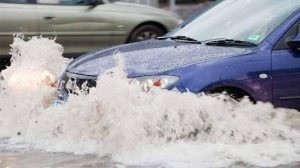
A proper inspection of the Vehicle Identification Number can help you know if the concerned vehicle has been subjected to fire or flood.
This can be a clever step to know if there are any hidden damages that might make you and your vehicle vulnerable to untimely accidents.
- Stolen car information:
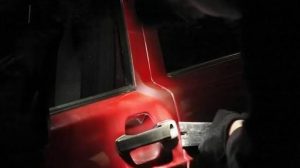
The VHR report is quite helpful to know if the car has been stolen and the time period between the stealing and the purchase of the vehicle.
- Salvage title: It generally refers to a vehicle whose cost of repair exceeded the cost of the car. While a salvage title to the car doesn’t indicate that the deal must be ended, it surely raises a danger signal for your purchase. The process of purchasing a car with a salvage title is very complicated and sometimes frustrating. It is applied to a vehicle which has been subjected to collisions, fire damages, flood damages, or stolen cases. Check your VHR with your VIN properly to avoid sleepless nights and dark circles.
- Ownership details:

The VHR shows the ownership details of the concerned vehicle. It uses the public records and other information to show you the number of owners of the particular vehicle you are likely to buy, whether they were individual owners or the vehicle was owned by any company or agency.
A VHR can reveal the multiple owners if the vehicle had any. The more the number of owners, the more the vehicle tends to be less cared and carelessly used. It also reveals the remaining loan amount, if any, and you should ensure that all the liens are cleared before you purchase the vehicle.
- Service/repair details:
It is very important to purchase a well maintained and well serviced vehicle if you are making a second-hand purchase. A full Vehicle History Report will show the history of the repairs and services the vehicle has been subjected to.
With this information, you can get your vehicle properly repaired if there are any kind of disturbances in the concerned vehicle.
- Odometer readings:
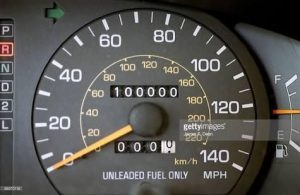
Any illegal tampering with the odometer can be known by a proper VHR. While these days it is almost impossible to roll back the odometer settings, it is better to investigate it especially before you make a purchase of a pre-owned vehicle.
It can be manipulated to show you some incredibly fake low mileage to convince you to go for that particular vehicle.
- Information about registration and inspection: Every vehicle has the information about its registration and the inspection about the odometer readings, safety checks, etc. Any gaps in registration or inspection might indicate that the vehicle might have undergone some suspicious processes.
While the Vehicle History Report shows a clear picture of the car and its owner, you should not completely rely on this information to purchase the vehicle. You should also ask for other mechanical information and investigate them too.
VIN number cloning
If the verification states that the VIN number in the vehicle doesn’t match with the number on the registration documents, this means there is something suspicious about the vehicle.
If the car is stolen by someone, the thief may try to transplant another vehicle’s VIN number into that stolen car and try to hide its identity.
Some may also try to manipulate the VIN number by combining the Vehicle Identification Number from two different vehicles. It is always advisable to refrain yourself from buying such vehicles.
VIN check before buying and selling a vehicle
If you are going to buy a vehicle then it is must for you to get your vehicle a VIN check.
The VIN check and a VHR report can help you a lot in knowing the actual condition of the car and about its owner (if any).
Also, it is quite important for a seller to perform a VIN number lookup.
On the part of a seller, it is a plus point to gain the buyer’s trust by performing a VIN check to make the deal more transparent.
The VIN check on your part can quicken the purchasing process since the report of your VIN check might satisfy the buyer. If there are any complications, try to solve them to brand your vehicle as a clean one.
A Vehicle History Report can show you only those histories of the vehicle which are officially reported and recorded.
A minor accident might not be reported and thus a VHR would miss this record. While major accidents and crimes involving any vehicle need to be recorded officially, it is a wise choice to get a Vehicle History Report before you buy or sell any vehicle.
Thus, it is very important to go for a VIN number lookup before selling or purchasing a new/pre-owned vehicle to avoid any kind of complications or problems afterwards.
Checking the VIN is the safest way to have a true establishment of the vehicle’s identity. It can reveal if that particular vehicle is related to any type of crime or illegal activities in any way. It can also show you if any unnoticeable damages are present in the vehicle (it may be repaired or remodeled after any accident).
A VIN number lookup can show a clean record or the concerned vehicle and save you from series of legal hassles if there are any illegal records against the vehicle you are going to purchase.
It is the duty and right of both the buyer and the seller to have the right and clean picture of the vehicle that which he/she is going to deal with and knowing your VIN number and using it wisely by getting the VHR is a very important step in the process of buying/selling any vehicle.


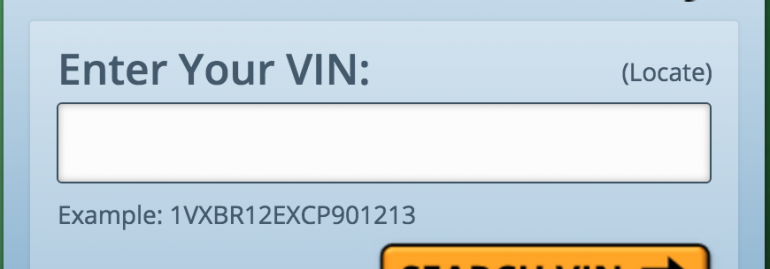
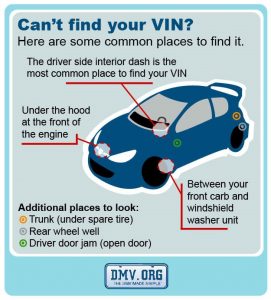

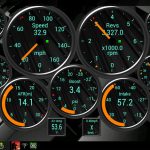
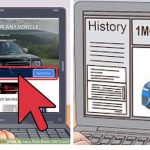
For those who don’t know What is VIN lookup?
It looks into history of car, like:
Age of Vehicle: In most cases the serial number of a vehicle built after 1989 will be the vehicle identification number (VIN). This is not the number plate (registration/rego) number.
Structure of VIN: A VIN can only be made up of the following characters: 0-9, A-Z (uppercase) excluding letters I, O and Q,
Normalisation of input: When searching by VIN, if you enter the letters i/I, O or Q the system will normalise or correct these letters when searching on the PPSR for a security interest and for the retrieval of third party NEVDIS data.
Location of VIN: The VIN generally can be located on the body of the vehicle, under the bonnet, at the bottom of the windscreen on the passenger side, or along the drivers side door closure area.
What is a vehicle identification number check (VIN)? A vehicle identification number, or VIN, is a unique identifying code that all cars are required to have. And it can be checked in national database of VIN’s. For all the millions of cars that have been built around the world, no two cars have the same VIN.
All cars built after a 1981 have a VIN made up of 17 characters (digits and capital letters) that reveal information such as the model and variant of the car, its manufacturer, engine size and where it was made. VINs on older cars can vary from 11 to 17 characters, with the shorter ones providing less detailed information.
Why You Should Use a VIN Number Lookup: A VIN number lookup can reveal a vehicle’s history, including salvage auctions, theft and accident records. It can also reveal its current market value, along with estimated ownership costs and maintenance and repair costs. There are many different benefits to using a VIN number lookup. Here are a few of the top reasons why you should use one. And, you can do it right on your own computer or tablet! Just enter your VIN and start looking for information right away!
This is a very informative article about the importance of VIN number lookup and VHR report for buying or selling a second-hand car. I learned a lot about how to decode the VIN and what it can reveal about the vehicle’s history, such as accidents, damages, theft, ownership, etc. I think this is a very useful guide for anyone who wants to avoid any complications or problems with their car purchase or sale. Thank you for sharing this valuable information!